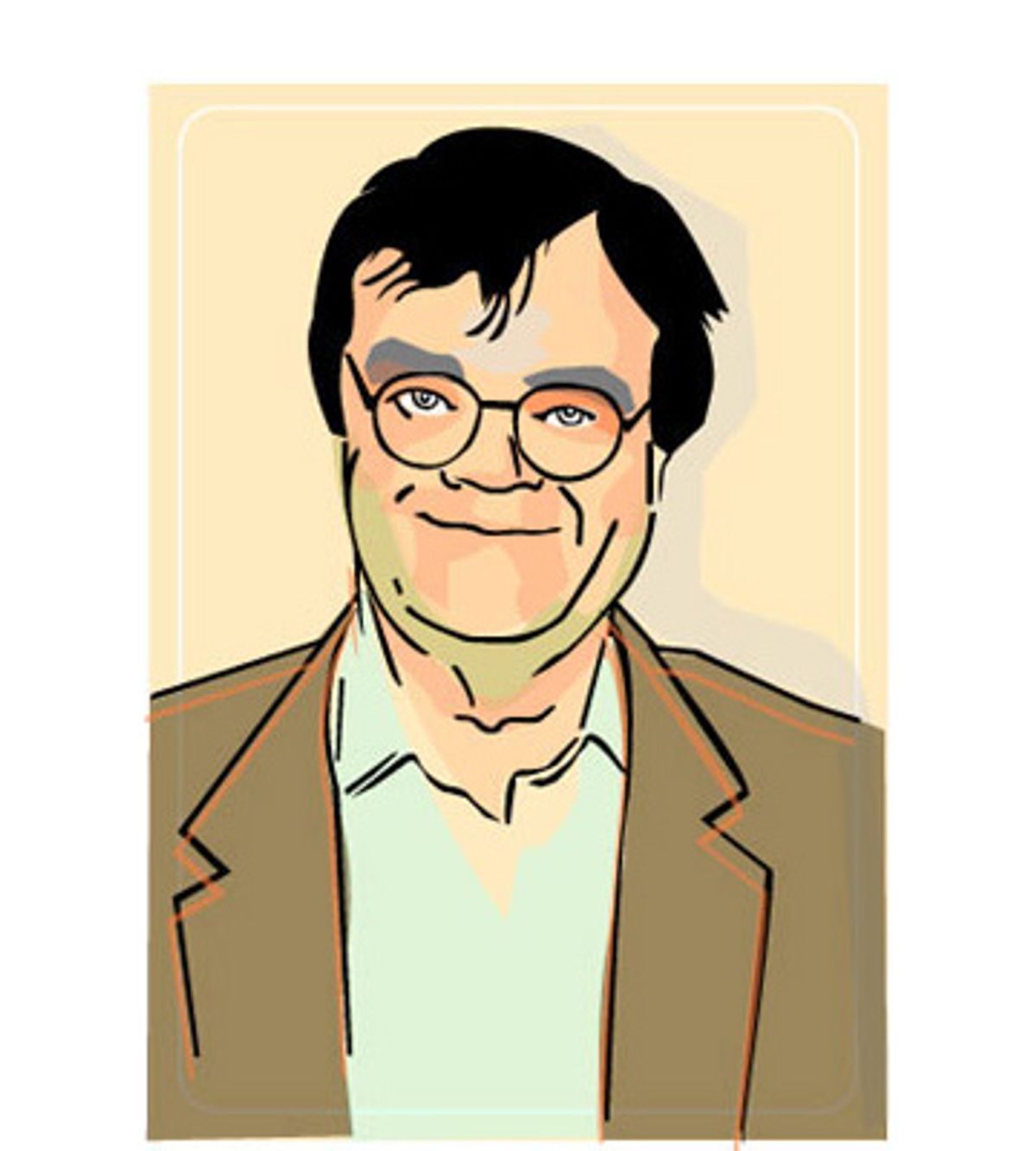I enjoy a well-crafted obituary as much as the next man, and now that people of my own generation (what????) are appearing there, the obituary page becomes closer and closer to my heart.
Yesterday I thought I might have to write one for my older brother after he slipped while skating and cracked his head open and was rushed to intensive care, and so I was reviewing a few salient facts of his life -- his long off-and-on romance with Natalie Wood, his invention of sunscreen, his real estate empire in the Caribbean -- but now he is conscious and showing signs of intelligence so it looks as if I'm off the hook.
I like to read English obituaries, which are more frank than American obits. Americans go to great lengths not to speak ill of the dead and lean toward the comforting eulogy, but the obituary is not meant to comfort. It is meant to take inventory of a life. And thereby remind us that we too are mortal and someday the world will look at us with a cool clear eye and measure our contribution to the common good. ("His weekly column was always neatly typed and contained very few serious grammatical errors.") To make the dead guy into a demigod does not serve the common good.
This morning I read the obituary of an English writer I'd never heard of named Edward Upward, who died last Friday at the age of 105. (In fact, he outlived his obituarist, Alan Walker, who died in 2004.)
Ed went to Cambridge and was a friend of W.H. Auden and Christopher Isherwood and his career seems to have wilted in the heat of their brilliance. They became famous and he got a job teaching school. And then he joined the Communist Party, which is a heavy load of bricks to carry, and he married a hard-line Communist named Hilda, and he wrote an essay announcing that good writing could only be produced by Marxists, whereupon he suffered writer's block for 20 years. (Talk about poetic justice.)
"The middle decades were bleak for Upward," wrote Mr. Walker. "During a sabbatical year designed to give Upward the chance to write, he suffered a nervous breakdown." And then when he did publish again, he had become an antique. His autobiographical trilogy, "The Spiral Ascent," was received by critics like you'd receive a door-to-door vacuum-cleaner salesman.
And then there was the problem of walking around with the name Edward Upward.
It is a sobering tale for a fellow writer to read, and the main lessons of Upward's life, as I see it, are these.
1. Don't hang out with brilliant people who are likely to outshine you -- unless you are a satirist. In which case, do. And stand quietly in back and take notes.
2. Writers shouldn't join parties and especially not the Communist Party.
3. Avoid making big pronouncements such as "The only good art is Marxist art." You say it, feeling you're on the cutting edge of history, but it's only going to come back and bite you in the butt.
4. If you must write an autobiography, give it a better title than "The Spiral Ascent."
I am a satirist. I am not now, nor have I ever been, a member of the Communist Party. I might have joined if Natalie Wood had tried to recruit me, but she did not. I am a Democrat but mainly for the atmosphere and so I can meet normal people who do real work. I don't write essays or autobiographies.
And thanks to Edward Upward, I have decided not to take a sabbatical after all. You go off to the woods for a year and it puts you under terrible pressure to write "Moby-Dick" or something worthy of having had an entire year in which to write, and the longer you work at this masterpiece, the shabbier it looks, the whale turns into a guppy, and at the end of the year you have torn up almost everything you wrote and you are filled with self-loathing and bitter regret. No thanks. I am sticking to my post and recommend that you do, too. And stay off the obituary page as long as possible. One hopes for an opulent send-off but it's not going to happen, dear heart, and so you may as well go ahead and live your life because your obituary is bound to be a big disappointment.
(Garrison Keillor is the author of a new Lake Wobegon novel, "Liberty," published by Viking.)
© 2009 by Garrison Keillor. All rights reserved. Distributed by Tribune Media Services, Inc.

Shares